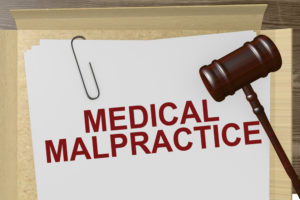 After Medical Malpractice, Hospitals Consider Telling the Truth
After Medical Malpractice, Hospitals Consider Telling the Truth
Certain healthcare systems in the US have recently tried a radical new way to tackle medical malpractice: admitting it. These institutions have taken accountability for certain extreme cases and agreed to cover all the costs for the victims. This honesty from hospitals after medical malpractice is a wonderful trend.
Unfortunately, it’s also still not the norm.
And it’s not always quite as honest as it looks.
A Case Close to Home
The recent push for honesty about medical errors comes after Tennessee’s most prestigious hospital—Vanderbilt University Medical Center—admitted a patient died due to receiving the wrong injection. They told the family, explained honestly what happened, and then settled with them out of court.
For a lot of people who experience medical malpractice, that might seem like a good deal: they admit the error and pay for what they did, including all the medical costs and pain and suffering. It keeps the whole thing out of court, which most everyone prefers.
However, the settlement also banned the family from talking about their loved one’s death. And it sidestepped the reporting system, so they never disclosed the error to the government, public, or regulators. Basically they pretended like it never happened. That is, until the Centers for Medicare & Medicaid Services and the Tennessee Department of Health received an anonymous tip about what happened.
Why Total Honesty Is Best in Medical Malpractice
Mistakes in healthcare—even big ones—do happen. It’s not something we like to think about, but risks are a part of our lives in ways we have to acknowledge. And when they happen, most patients and their families desperately want the honest truth. They want to hear from their doctor and the hospital exactly what happened, why it happened, and what they’re going to do about it.
It appears some providers want to offer that without telling the rest of the public what happened.
But honesty can’t work halfway. It’s important that regulators and other patients be aware of what’s going on. We deserve all the information necessary to choose safe hospitals and doctors with a history of great care. Being honest with one patient but not telling anyone else puts the rest of us at risk.
 How the Legal Process Forces Honesty in Medical Malpractice
How the Legal Process Forces Honesty in Medical Malpractice
The reaction of hospitals after medical malpractice has a lot to do with accountability. We should always ask whether the group most responsible is being held accountable to the public they serve.
That’s why I take my work as a medical malpractice lawyer so seriously. I realize the work I do helps keep the system in check. It helps make sure hospitals and doctors can’t hide their errors—errors that have an enormous impact on our lives.
And most importantly, I make sure the patients get everything they need and deserve because of their injuries. We don’t force them into gag orders while the wrongdoer refuses to report the error.
In other words, we don’t let them get away with it.
If you or a loved one suspects medical malpractice, don’t wait. We can help, and we don’t get paid anything unless you do. The conversation is totally free, and I’m happy to answer any of your questions.
Just give me a call at 901-327-2100 or fill out the form below.

 How the Legal Process Forces Honesty in Medical Malpractice
How the Legal Process Forces Honesty in Medical Malpractice